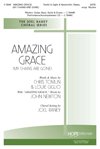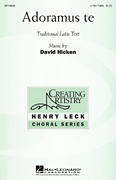From Thursday's Orlando Sentinel.
Permalink | Read 2055 times | Comments (1)
Category Just for Fun: [first] [previous] [next] [newest]
Mallard Fillmore, from yesterday:

From what little I've read about the changes, there are some positive ones as well. Still, the move to make the test more aligned with what students are actually learning, and to what they will likely encounter in general life, is part of a disturbing trend. To my mind, the Scholastic Aptitude Test is only useful if it measures what is not taught in school, nor in "test-prep" courses. Otherwise, it's just another achievement test. A mastery of so-called arcane vocabulary is an indicator of the extent and quality of a student's outside reading. Success in the analogy section, which to my chagrin was dropped long ago, was an indicator of a certain kind of mental agility. A widely-read, mentally agile person is more likely to be successful in college, hence the putative value of the test.
Granted, an exam based so strongly on the English language puts foreign students, and those from difficult backgrounds, at a disadvantage, but that's only an argument for why the SAT should be but one part of many criteria for college acceptance, not for altering the test itself.
Except for a short lesson in proper test-taking strategies and the specific structure of the exam, I'm of the opinion that test-prep courses simply undermine the purpose of the test. Sorry for pulling the "old" card, but in my day we went into the SAT cold, knowing that the best preparation was years of good habits. In fact, we were told that it was impossible to study for such an exam! Easier all around....
Sunday, March 23, 2014:

I Am Not Afraid (Martin/Larson, Bekenhorst Publishing, BP1863). (You must click the link to hear this one.)
and

Amazing Grace (My Chains Are Gone) (Tomlin/Giglio/Newton/Raney), Hope Publishing, C5644). (You must click the link to hear this one, too.)
Calibre is a free e-book library manager, not that I've done much with that feature yet. There are many elements, including a news feed handler, that I think I might like if I'd take the time to investigage them, but right now I'm very happy just using the feature for which I installed it: Calibre converts all sorts of other e-book formats into something my Kindle Paperwhite can read. Suddenly I'm drooling over Project Gutenberg and the Christian Classics Ethereal Library. What's more, my Kindle was supposed to be able to handle pdf files, but was not doing at all well with them; Calibre quickly and easily solved that problem.
 Unbroken by Laura Hillenbrand (Random House, 2010)
Unbroken by Laura Hillenbrand (Random House, 2010)
There are math prodigies. There are music prodigies. And then there is Louis Zamperini, who can only be called a survival prodigy.
Read the Unbroken before the movie comes out. Not that I know anything bad about the upcoming film, but I do know that movies have a track record of focussing on the action while missing the subtleties. Not that there aren't subtleties I'd rather have missed.
To summarize the story of Zamperini—Olympian, WWII pilot, prisoner of war—might give away too much. You could read the Wikipedia article, but I don't recommend it. Let Laura Hillenbrand be the storyteller; she does the job remarkably well.
One caveat: Although I recommend Unbroken highly—it is a remarkable story, horrifying and wonderful—I'm not sure about recommending it to anyone with an active, visual imagination. I'm not one who visualizes what I read well, as I'm usually in too much of a hurry to get on with the story. But evil images can make an impression in a flash, and one particular incident haunted me for days. It still does, though I'm getting better at banishing it when it intrudes. I certainly can't recommend the book to grandson Jonathan, for example, though it's well within his reading ability and would give him important insights into World War II, the clash of cultures, the depths of evil, and the power of grace. It would also scar his young soul. As an aunt, I'm even reluctant to encourage our nephews to read Unbroken, but I have to realize that, being teens and older, their souls have probably already been scarred. Certainly several of them are old enough to have been in the story had they lived at that time, which is another reason it's hard to read.
Three observations that should not be spoilers:
- As a child, Louis Zamperini could only be called a juvenile delinquent, despite a reasonably happy family life. The traits that made him so were apparent even when he was a toddler, though they were exacerbated by problems at school. It's clear that these same characteristics also drove him to be an Olympic athlete, a war hero, and a survivor in unspeakably brutal conditions. In a society where unruly children are routinely drugged into compliance, where they have no acceptable outlet for their wild energies, where their natural talents are quashed rather then channelled—where will our heroes come from when we need them?
- The brutality of the Japanese prison camp personnel was almost beyond belief. Take a generation or two of any society: abuse them physically and mentally, daily and as a matter of course, in school and in the military; teach them that surrender and capture are the ultimate in shame and degradation; above all, fill them with the certainty that they and their people are vastly superior to all other beings ... and then put the dregs of that society, the failures, and the mentally ill in charge of the prison camps. What is astonishing is not the consequences, but how quickly they come to fruition.
- Despite seeming evidence to the contrary, good is vastly more powerful than evil.
The final of the three articles I chose from the January-February issue of Christianity Today is "Who Owns the Pastor's Sermon?" which dives into the thorny issue of intellectual property rights. If a church hires a pastor to preach sermons, do those sermons become church property, or does the preacher retain the copyrights? Right now, the law favors the churches, which is why more pastors are seeking legal help to craft clear agreements. Even though the focus of the article is entirely on pastors and sermons, church musicians, who frequently create intellectual property during the execution of their jobs, should take heed as well.
The law firm of Yates & Yates, which represents many Christian preacher-authors, has a standard agreement, which "recognizes that the pastor, as the creator, owns the intellectual property rights and has the right to determine copyright ownership. ... [T]he pastor grants the church a royalty-free license to use his written or recorded material."
It's the only arrangement that makes sense, said Yates. ... Preachers should own their sermons. If pastors don't own their sermons, that would essentially rob them of their livelihood. ... Pastors wouldn't be able to preach the same sermon in more than one place. And they wouldn't be able to take their sermon notes with them when they moved to a new church, which is "ridiculous," said Yates.
However, the legal situation is more complicated than this.
Frank Sommerville, a Dallas-based attorney who specializes in nonprofit law ... says that under the Copyright Act of 1976, a pastor's sermons qualify as "work for hire." That means the copyrights and intellectual property rights actually belong to their employer.
"It's not the answer that pastors expect," said Sommerville. "They've always taken the position that God gave them the sermon as part of their ministry. It never crossed their minds that there would be a law that would govern their sermons." (More)
Permalink | Read 4182 times | Comments (0)
Category Random Musings: [first] [previous] [next] [newest]
Because there was actually only one great article in Three Great Articles - Part 1....
If our library is as good as it has been in acquiring books that I have suggested, eventually I'll post a review of The Locust Effect: Why the End of Poverty Requires the End of Violence. In the meantime, this is the Christianity Today article that caught my attention: Why We're Losing the War on Poverty, an interview with lawyer-activist-author Gary A. Haugen of the International Justice Mission. (If you want to correct your view of lawyers as the scum of the earth, take a good look at IJM.)
Picture a poor farmer trying to scrape his way out of poverty. Just when the crops have started to show promise, the locusts descend and devour all of that hard work. That's the locust effect—the way violence impacts the poor in the developing world. The traditional things we do to assist the poor to get out of poverty don't stop the violence. The Locust Effect tells the story of the hidden plague of violence.
The lack of reliable law enforcement, Haugen argues, exposes the poor to the worst predatory violence, undermining the good accomplished by the billions of dollars aid agencies spend annually to fight poverty.
Haugen wants Westerners—and the aid agencies they support—to be as determined in fighting criminal violence against the poor as they are in relieving hunger and treating HIV/AIDS.
The problem is not that the poor don't get laws. The problem is that they don't get law enforcement. There is a functional collapse of law enforcement systems in the developing world; the poor are left utterly vulnerable to violence.
There's a problem with pouring aid into circumstances where poor people are not protected from predatory violence. ... [W]e are going to be significantly disappointed in the outcome of our poverty alleviation efforts.
When people think of poverty, they tell you what they see: the shacks, the dirty water, the hungry families. Those are all the visuals that immediately come to mind.
What they don't see are the assaults, the slap across the face, the rape, the torture by police, and the extortion. It's intentionally hidden by the perpetrator. The victims are scared and ashamed, and it's difficult for them to speak. People don't talk about the things they don't have solutions for. People working in the development field and in poverty-fighting or public health don't often come from law enforcement.
There is a solution for violence: the basic service the rest of us rely on every day, law enforcement.
The ideal partner is the body of Christ around the world. Westerners are not going to parachute in and save the day. This is a fundamental struggle for justice that's going to have to be owned by the local community.
Another partner will be governmental authorities within that community, within that country. This recovers Christian interaction with government. Romans 13 says the authorities are actually ministers of God in order to do justice in the community. Christians in other eras shaped the way the government went about seeking justice and peace in the community.
In the city of Cebu, Philippines, IJM partnered with community leaders to rally the justice system to protect children from sex trafficking. That's Project Lantern. One critical partner was the church, Protestant and Catholic. The victimization of children in the commercial sex trade was reduced by nearly 80 percent because law enforcement protected the children instead of the sex traffickers. ... It's now being replicated in Manila and Pampanga. We're also seeing the government itself beginning to foot the bill and take the initiative. IJM is a partner, but it's no longer the prime moving force. The government itself is setting up specialized units. Fast-track courts are being established to address sex trafficking. Safe places for the survivors of sex trafficking are being established. It's being taken nationwide in the Philippines.
I'm on the side of hope. I've seen it with my own eyes, and I've seen it profoundly in history.
Permalink | Read 2587 times | Comments (0)
Category Random Musings: [first] [previous] [next] [newest]
We've subscribed to Christianity Today magazine for more years than I can remember. The publication has been through many changes over the years, and I can't say as I've been happy with many of them, particularly its following of the deplorable trend of featuring images, pull-quotes, and short snippets instead of solid text. If it wasn't designed by someone with ADHD, I'm guessing that's the audience they're reaching for.
On the other hand, CT is far from the worst offender in this, and besides, it makes for perfect bathroom reading. There's no need to linger after the job is done just to finish a chapter.
Despite my complaints about the format, they do have some excellent articles not found elsewhere, and this year's January-February issue was a home run. I'll mention three article of particular note. Whether non-subscribers will be able to follow the links or not I don't now; they have a good deal of content available for free on their website, but what is and what isn't seems random to me.
The Surprising Discovery About Those Colonialist, Proselytizing Missionaries. Sociologist Robert Woodberry's work was inspired by a mandatory lecture he attended while in graduate school:
The lecture was by Kenneth A. Bollen, a UNC–Chapel Hill professor and one of the leading experts on measuring and tracking the spread of global democracy. Bollen remarked that he kept finding a significant statistical link between democracy and Protestantism. Someone needed to study the reason for the link, he said.
Woodberry was hooked. Warned by his professor that finding something positive about missionaries in the colonial era might scuttle his academic career, Woodberry was meticulous in his work and extraordinarily skeptical in his statistical analysis. The correlation wouldn't go away:
Areas where Protestant missionaries had a significant presence in the past are on average more economically developed today, with comparatively better health, lower infant mortality, lower corruption, greater literacy, higher educational attainment (especially for women), and more robust membership in nongovernmental associations.
"Missionary" is a broad term, and it's important to note that the correlation only applies to what the author calls "conversionary Protestants" who operated independently of the colonial powers.
Protestant clergy financed by the state, as well as Catholic missionaries prior to the 1960s, had no comparable effect in the areas where they worked. Independence from state control made a big difference. "One of the main stereotypes about missions is that they were closely connected to colonialism," says Woodberry. "But Protestant missionaries not funded by the state were regularly very critical of colonialism."
"Why did some countries become democratic, while others went the route of theocracy or dictatorship?" asks Daniel Philpott, who teaches political science and peace studies at the University of Notre Dame. "For [Woodberry] to show through devastatingly thorough analysis that conversionary Protestants are crucial to what makes the country democratic today [is] remarkable in many ways. Not only is it another factor—it turns out to be the most important factor. It can't be anything but startling for scholars of democracy."
The missionaries didn't set out to fight social injustice, but they knew it when they saw it, and knew they had to do something about it. Nor did it hurt their cause to have Christianity associated with someone helpful, rather than just the abusive rulers. For example: (More)
Permalink | Read 2966 times | Comments (1)
Category Random Musings: [first] [previous] [next] [newest]
Funny—with so much of the mainstream now celebrating Pi Day, I find myself less inclined to do so. But for the sake of our grandson, with whom a phone conversation is more likely to consist of recitations of pi to 36 digits, or of whether a given number is prime or composite, than it is of "what did you do today?" I will reprise the Pi Day video I posted in 2011. Enjoy!
It's still worrisome that our president does not consider directing the education of one's own children to be a fundamental human right, but today I'm offering thanks and respect for the Department of Homeland Security's decision to allow the Romeike family to stay in the U.S. "indefinitely." (Previous posts here and here.) That decision is not as satisfying for legal precedent as a positive court decision overturning the administration's efforts to deport the family—on the grounds that Germany's heavy-handed anti-homeschooling laws are not sufficient reason to grant asylum—but the Supreme Court refused to review the case. The TSA's decision, while still leaving the Romeikes in a somewhat tenuous position, at least also leaves them safe in their Tennessee home.
This past weekend we had a very encouraging shopping trip, and as an inveterate non-shopper, I don't say that often. This time we ventured into a part of town we rarely visit (though after this experience it may happen more often) and most notably went to our IKEA for the first time.
At the risk of exacerbating the Switzerland-Sweden confusion, I'll mention that going to IKEA was like a mini visit to Janet's apartment, though sadly lacking in grandchildren. There are many similarities in the stock between this and the IKEAs I've been in in Switzerland, and I kept exclaiming, "Look, that's their silverware drainer / toy bins / easel!" "That's the exact train piece package I bought over there!"
Although the purpose of the trip was merely exploratory, we did end up buying several items, and what both surprised and thrilled me was where they were made. Yes, there were certainly plenty of items with the "Made in China" label, but we also easily found products from India, Bulgaria, Latvia, and other alternative sources, and even the occasional "Made in USA." Later in the same trip we were happy to buy a teapot made in the Czech Republic from Crate and Barrel.
To judge by what's available in most stores, China has a monopoly on production these days, and their reputation for product safety and factory working conditions is terrible. Even if their record were pristine, I'd still be concerned about their control of the market. (Microsoft, Apple, and Google make me similarly nervous.) I don't boycott Chinese products, but I'm a lot happier to see more variety available. Is India any better? I don't know, but until proven otherwise I'll take the chance, and I'm certainly happy to buy from countries with European Union standards.

Our Ash Wednesday anthem: I Am Not Afraid (Martin/Larson, Bekenhorst Publishing, BP1863). (You must click the link to hear this one.)
 And for Sunday, March 10, 2014, the beautiful Adoramus Te (David Hicken, Hal Leonard, 08748829). This recording is still not our choir, but getting closer: it's from one of the times when our children's choir sang (with many others) at Carnegie Hall for the National Children's Choir Festival. I know one can get tired of anything, but at the moment I feel we could sing this every week!
And for Sunday, March 10, 2014, the beautiful Adoramus Te (David Hicken, Hal Leonard, 08748829). This recording is still not our choir, but getting closer: it's from one of the times when our children's choir sang (with many others) at Carnegie Hall for the National Children's Choir Festival. I know one can get tired of anything, but at the moment I feel we could sing this every week!
I am so not ready to go back on Daylight Saving Time. The only good part about changing the clocks is the extra hour of sleep, and that only happens in the fall. This, however, makes the medicine go down a little easier. (Thanks, Tim!) (My European audience can enjoy it in three weeks.)
Permalink | Read 2479 times | Comments (4)
Category Just for Fun: [first] [previous] [next] [newest]
Although we missed our own Shrove Tuesday pancake dinner and burning-of-the-palms this year, I love this traditional prelude to Lent. After we left Norwood, Massachusetts, our friend Alan became vicar of a small church there. He has since written a book, and more to the point, produced this homage to Shrove Tuesday pancake dinners, inspired by Robert W. Service's The Shooting of Dan McGrew. As a fan of all three (Service, Alan, and Shrove Tuesday pancakes), I had to reproduce it here (with permission).
The kitchen crew was whippin’ it up
at the Redeemer pancake dinner.
The band that was playin’ the Bluegrass tunes
was pickin’ ‘em out like a winner.
There at the back was a man in black,
who was speakin’ of Israel;
And by his side was the love of his life,
the lady that's known as Gail.
The cause of all of this merriment
was the upcoming purple season;
And so the crowd was chewin’ the fat,
as if they needed a reason.
The following day would bring ashes and grief,
forty days of a somber tone.
But tonight they wore beads and sated their needs
by carvin’ the ham to the bone.
The vicar was telling the lamest of jokes,
as the vicar is wont to do.
They say that the Anglicans know how to drink,
and they surely know how to eat too.
These are the simple facts of the case,
and I guess I ought to know.
There was food and fun, and everyone smiled,
I saw as I watched them go.
There’s a time for Lent and a time to repent,
but the season goes down so much better,
If you start it off by gorging yourself
on homemade pancakes and butter.
When he was young, my father had a two-mile walk to work, and used the time to memorize long poems, including Dan McGrew and another Service work, The Cremation of Sam McGee. Later, upon request, he would recite them to his children and grandchildren. That pleasure cemented my love of the poems, and it came flooding back when I read Alan's verse. Thank you, Alan and Vivien!
Permalink | Read 5461 times | Comments (2)
Category Everyday Life: [first] [previous] [next] [newest] Just for Fun: [first] [previous] [next] [newest]
Do most people read faster on an e-reader?
I've discovered that I can borrow books from our library for my Kindle, and this past Saturday I signed out The Hobbit. That we have two physical copies on our shelves is beside the point: Kindle books are the most comfortable way to read in bed—at least under our present lighting setup—and that's what I wanted it for. As a tried-and-true introvert, my brain is always spinning rapidly, and if I don't get sufficient, effective processing time during the day—and sometimes even if I do—trying to fall asleep is like putting in the clutch while opening the throttle: high rpms with no actual progress made. Reading a few chapters of a good book engages the engine and throttles back to where sleep can take over.
For physical books, our library's default loan period is three weeks. The default loan period for e-books is one week.
The downside of so much exposure to Facebook and other modern communication is that I am tempted at this point to write, "WTF?" Instead, I will try to remember what we all said before that offensive term became so common as to jump immediately even to my own mind, and simply say, "Huh?" I find reading a book a week to be an ambitious goal.
I don't think I read any faster (or slower) on the Kindle than with the printed page. Do you?
Permalink | Read 2285 times | Comments (2)
Category Random Musings: [first] [previous] [next] [newest]



